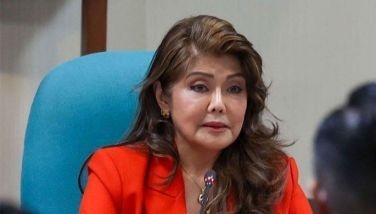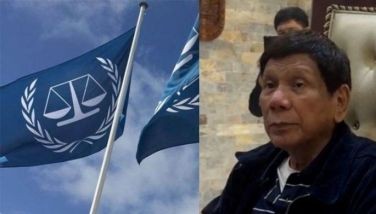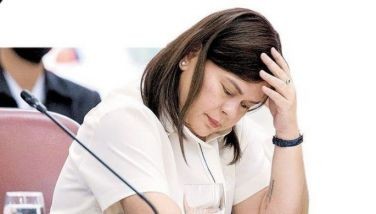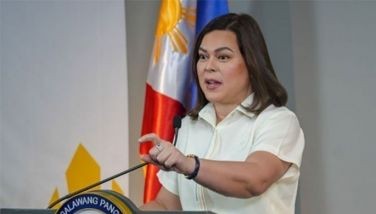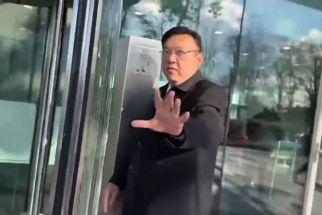Elections and democracy

We take pride in the Philippines as the bastion of democracy in Asia. Modeled after the United States, the Philippines is under a presidential form of government.
Unlike in the United States, where the candidates for president and vice president are on a joint ticket, the president and the vice president are elected separately.
Senators and congressmen comprising the bicameral legislature are likewise directly elected by the people.
The candidate with the highest number of votes wins.
According to the United Nations, the essential elements of democracy include the values of freedom, respect for human rights and the principle of holding periodic and genuine elections by universal suffrage.
We shall delve into the importance of Philippine elections in a democracy in today’s column.
Let us start with this political trivia. Only Filipino men were allowed to enjoy the right of suffrage until 1937. The 1935 Constitution provided that “suffrage may be exercised by male citizens of the Philippines not otherwise disqualified by law…”
The abovementioned Constitution, however, extended to Filipino women the right of suffrage under the condition that 300,000 Filipino women would vote in favor of a motion in a special plebiscite to be held within two years after the adoption of the 1935 Constitution.
The rest, as they say, is history. Women’s suffrage was legalized in 1937.
It has been generally accepted that elections play a crucial role in democratic governance. Political scientists have long established that politicians, or elected leaders for that matter, are held accountable for their actions through the mechanism of elections.
While elections ought to guarantee democratic representation, the nature of our elections has become elitist for the simple reason that elections have turned into popularity contests focused on the candidates’ personalities rather than platforms. Mass appeal trumps track record.
Personal patronage and money politics have emerged as norms in Philippine elections, where poor and disadvantaged Filipinos sell their votes in exchange for monetary and material benefits.
Candidates must either be rich or popular to win elections. Running for public office is expensive. It is no wonder that those in the political clans and dynasties, entertainment personalities and now, popular social media influencers have been the ones filing their Certificates of Candidacy. The high cost of getting elected has disincentivized people like me who have no popular surname and who belong to the middle class from participating in such democratic exercise.
The Philippine Center for Investigate Journalism mentioned that the 12 winning senators in the 2022 elections reported “a total campaign spending of P1.5 billion in their Statement of Contributions and Expenditures – an amount watchdogs view may be an underreporting.”
Having said this, elections have become a breeding ground for corruption. Politicians are keen to recoup their so-called election investments.
For one, around P175.6 billion have been inserted in the 2024 national budget. My good friend, former senator Ping Lacson, who referred himself as “the vanguard of the national budget,” called this “the magic fund” of the Department of Public Works and Highways (DPWH). And we are all familiar with the reputation of the DPWH.
The question that begs to be asked is, with the current brazen acts of corruption, is there hope in a “flawed” democracy like ours, where vote buying is rampant?
Yes, of course.
In this regard, I am reminded of the timely message of Archbishop Soc Villegas, former president of the Catholic Bishops’ Conference of the Philippines, about the issue of vote buying. Allow me to quote Archbishop Villegas.
“Vote buying and selling is a sin to God and against the law. But if you are hungry, if you are needy, you may accept it but do not fulfill that which is asked of you, because if a candidate is doing something illegal and awful and you’re being involved, tell him – ‘perform that misdeed on your own, leave me out of it.’ You may accept the money, but not because you promise to fulfill your end of the deal, but because you are in dire need for yourself and your family. You are not obliged to fulfill an immoral, illegal contract. This means, when something bad was agreed upon, something awful is asked of you, whatever you do, choose God, not the candidate buying your vote.”
Ultimately, the future of our country and destiny of our leaders lie in our hands. It is up to us if we would allow this rotten system to perpetuate.
We can all put an end to this cycle of installing politicians who put their selfish personal agenda before the nation’s interest by electing competent and trustworthy leaders. We have done this before when we made Rodrigo Roa Duterte as the 16th president, against all odds and with no support from the political establishment.
And we can do it again. I am happy to note that Vice President Inday Sara Duterte continues to remain the most approved, at 60 percent, and the most trusted, at 61 percent, national government official in the Philippines, according to the latest Pulse Asia survey.
The consistency of VP Sara’s number one spot both in performance and trust shows that the Filipino people put more value to VP Sara’s work ethic, modest demeanor and integrity.
We have to remember the timing of the field work of the Pulse Asia survey, Sept. 6 to 13, when the dominant news was about the hearings of the Senate and House of Representatives on POGOs and the budget of the Office of the Vice President.
VP Sara’s recent Pulse Asia rating is a clear validation that our people ignore the toxicity of politics being spread by her ambitious political opponents.
This fact alone gives us hope that the future of the Philippines is bright indeed.
- Latest
- Trending
























